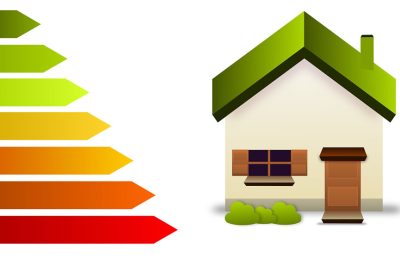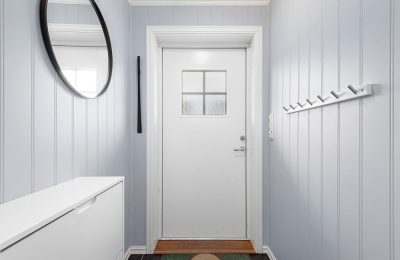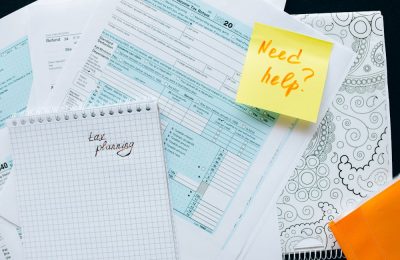Before you welcome your first tenants, you need to ensure that you comply with the many regulations related to the residential lettings industry. As a landlord you are obliged to meet certain legal requirements and your property must also meet specific minimum standards. The purpose of this guidance sheet is to provide you with an overview of the current requirements and legislation relevant to landlords and residential rental properties.
Summary of Requirements:
Landlord Registration (Scotland only):
All landlords in Scotland must register with their local authority (i.e. their local council). The owner of the property is the person who must be registered. In the case of jointly owned property, all joint owners must register as landlords. Owners must also declare any agent that they use to manage their property. An agent may be a professional, such as a letting agent or a solicitor, or a friend or relative, who looks after the property, arranges repairs, collects rents and so on. Each property you own needs to be registered.
For further guidance and to make your application please visit: www.landlordregistrationscotland.gov.uk
Landlord’s Buildings and Contents Insurance:
We recommend that all landlords purchase suitable landlords’ buildings and contents Insurance. If you fail to do this, you may not be fully protected in the event of a claim. Landlord’s insurance has public liability cover which means if your tenants or guests have an accident in your property they will be covered. Contents cover includes carpets, kitchen units and bathroom suites so even if the property is unfurnished you still need to cover the contents. You can also insure accidental damage, rent guarantee insurance and legal and eviction costs. Please also be aware that your standard insurance is likely to become void if you do not advise your insurer that you are letting your property.
The Repairing Standard (Scotland only):
Rented property must meet the repairing standard before it is let and at all times during the tenancy. The standard applies to almost all rented properties in Scotland. To ensure your property complies with the repairing standard you can check this guidance: https://www.gov.scot/publications/repairing-standard-statutory-guidance-private-landlords/pages/4/. To contact the private rented housing panel to assess a repairing standard issue: www.prhpscotland.gov.uk.
Energy Performance Certificate (EPC):
You cannot advertise a property to let without also stating its current Energy Performance Certificate rating. You need to get an EPC for every privately let property in Scotland. They are valid for 10 years. The EPC report gives the property an energy rating to show how energy efficient the property is. This information gives tenants an indication of how much it will cost to heat the property and helps them to decide whether or not to rent the property. As agents we are required to advertise the Energy Efficiency Rating along with the general property details. You can check if the property has a valid EPC already here: https://www.scottishepcregister.org.uk/
You are required to fit smoke alarms (to the current standard) in the living room and hall in each level of the property prior to renting it and maintain them throughout the period that your property remains let. The number and position of the alarms will depend on the size and layout of the house. There should be at least one alarm on each floor. The landlord should either install smoke or fire detectors that meet the standard set by the building regulations or be able to justify why a lesser level of protection is appropriate in a particular property. The landlord must also be aware that there may be a requirement for a particular property to meet more stringent standards such as HMO properties. A heat detector needs to be installed in the kitchen.
Carbon Monoxide Detectors:
A carbon monoxide detector should be placed beside every gas appliance in the property. These should preferably be mains operated, although battery operated models are acceptable. It should be noted on the gas safety certificate if there is a carbon monoxide detector present.
Gas Safety Certificate:
As a landlord it is your responsibility to make sure that annual gas safety certificates are carried out and that all gas appliances in the property are safe to use. A landlord should appoint a ‘Gas Safe’ registered (www.gassaferegister.co.uk) engineer to carry out a safety check on all gas installations and appliances annually. This includes the gas meter, gas boiler, gas heated water tanks, gas fires and gas cookers. You must supply the tenant with a copy of the Gas Safety Certificate (GSC), which is issued by the engineer every year. In addition to this statutory safety check, landlords should ensure that all boilers and appliances are serviced annually.
Electrical Installation Condition Report (EICR):
As a landlord it is your responsibility to ensure that the electrical installation (fixed wiring) in your property is safe to use. As a landlord, you should have a qualified electrician carry out an Electrical Installation Condition Report (EICR) of the fixed wiring and circuit board prior to letting out the property. When issuing the certificate, the engineer will advise when the next inspection should be carried out (this should be done at least every 5 years or more frequently if the report indicates a need for earlier inspection). Any defects noted or action required should be acted upon promptly.
Portable Appliance Test (PAT):
As a landlord it is your responsibility to ensure that all plug in electrical appliances provided for tenants’ use are safe. As a landlord, if you supply any portable electrical appliances within your inventory, it is your responsibility to ensure that they are safe to be used by the tenant. As a landlord you could ultimately be liable for injury caused to a tenant through the malfunction of an appliance due to an electrical fault. A letting agent will therefore require that all appliances are tested on an annual basis.
Legionella Risk Assessment:
It is a requirement under Health & Safety legislation that the water systems of all rented properties have been assessed for the risks of legionella.
Tenancy Deposit Scheme:
All landlords and letting agents in receipt of a tenancy deposit are obligated to transfer the deposit to a government approved scheme, who will hold the deposit until the end of the tenancy. The landlord or agent must also provide the tenant with particular key information, including confirmation of which scheme holds the deposit and when all or part of the deposit may be retained at the end of the tenancy. The deposit must be transferred and the Prescribed Information provided within 30 working days of the tenancy start date and must be recalled at the end of the tenancy with evidence of anything the landlord intends to deduct from the deposit. If the tenant disputes the deposit recall, both landlord/letting agent and the tenants have the right to submit evidence, and the deposit scheme will adjudicate the deposit case.
There are three schemes in Scotland:
Safe Deposits Scotland www.https://www.safedepositsscotland.com/
Letting Protection Scotland https://www.lettingprotectionscotland.com/
My Deposits Scotland: https://www.mydepositsscotland.co.uk/.
HMO (Houses of Multiple Occupancy) Licensing:
If you intend renting out a property to three or more unrelated adults, in a property of more than 2 bedrooms, you are required to apply for an HMO License with the local authority your property is in. Local Environmental Health and Fire Officers will advise on the requirements.
As well as complying with all of the compliance mentioned above, additional safety measures are required for HMO properties. This includes self-closing fire safety doors with safety with thumb turn and release locks, fire blankets, fire extinguishers and fire exit signs. They need a fire safety risk assessment annually. Additional smoke detectors are required in every room or any room that has a source of ignition. Emergency lighting needs to be placed to illuminate the exit routes in a property.
Lead Testing:
It is now a mandatory requirement of The Repairing Standard that landlords must ensure the water supply in their private rented properties is free of lead pipes, lead lined storage tanks and fittings from the boundary stopcock to the kitchen tap. All properties built before 1970 must be tested as the use of lead pipes was banned in 1969. Properties built after this are exempt from lead testing as they will not have lead pipes in them. Scottish Water are responsible for the pipework in the main street up to the boundary of your property. The landlord is responsible for the pipework from the inside of the property to the boundary toby in the street.
You can find out the rough age your property was built from the home report from when you purchased the property.
Scottish Water carry out a free test and can be contacted on 0800 077 8778. If lead is found in the property or in its boundary it has to be removed. Some exemptions apply if consent cannot be granted by all owners in a communal area such as a block of flats.
Conclusion
Failure to comply with the above legislation may result in hefty fines and in extreme cases imprisonment. It is better to take the time to get your compliance correct from the beginning.











